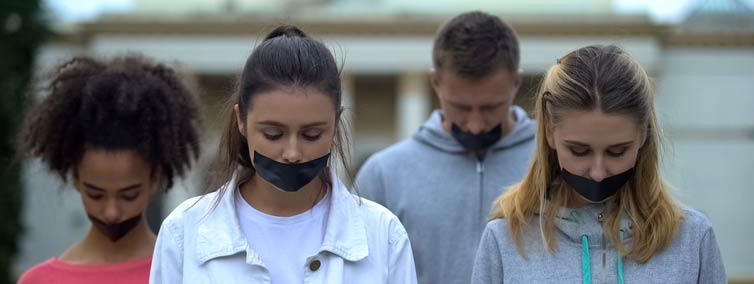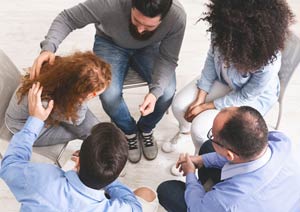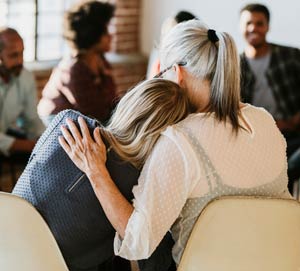
 |
|
||||||||||||
 |
 |
 |
 |
|||
Sexual Assault Awareness Can Prevent Violence |
 |
Sexual Assault Awareness Can Prevent Violence |
April is Sexual Assault Awareness Month, a national designation focusing attention on an issue found in every community. It’s essential to educate yourself about this kind of violence and how it affects us and those we love. Preventing sexual assault starts with each of us.
“Most sexual assaults are committed by someone the victim knows,” explains Hayley Flott, PDRMA Wellness Consultant, “including a friend or family member. In fact, 51 percent of women report being raped by an intimate partner. It can happen to anyone regardless of gender, age, race or sexual orientation. However, younger people, women, LGBTQ and racial and ethnic minority groups experience a higher rate of sexual violence.” The reasons behind sexual violence are not desire or attraction; it’s about power and control of another person. Consent means freely and enthusiastically agreeing to sexual activity. It’s about clear communication, where everyone involved feels safe and respected, and can change their mind at any time. Consent is not implied by silence, past actions or intoxication. Everyone involved must give a clear “yes.” Long-term Effects on Victims People who are sexually assaulted are more likely to suffer suicidal or depressive thoughts after the rape. They are also more likely than the general public to begin using drugs, experience problems at work or home and are at risk of pregnancy and sexually transmitted infections. Individual Actions Matter Preventing sexual assault requires each of us to hold others and ourselves accountable, show up for survivors and be in solidarity with those whose experiences may be different than our own. One thing every person can do is to help others get help. Victims of sexual violence do not always speak up. According to RAINN (Rape, Abuse & Incest National Network), an average of 68 percent of assaults in the last five years were not reported.
We also can all help prevent sexual violence by modeling and promoting healthy and positive relationships based on respect, safety and equality. You can help the people you care about be aware of any harmful beliefs they might have by speaking up if a disrespectful joke or comment about sexual assault is shared. When you let others know what your values are, you can influence the norms of your friends and peers. Support and Resources When supporting a survivor, you should validate the impact of the abuse rather than accept their attempt to minimize it. It is important to let the survivor know it’s okay to be upset, traumatized or hurting from it. There are many resources available for survivors, including:
Your Voice Matters and Help Is Available If you, or someone you know, are experiencing any form of sexual violence and need advocacy services, trained advocates are available to offer crisis intervention, emotional support, resources and referrals. Don’t be silent. Call 800.656.HOPE. |
 Plainly put, sexual assault is too common an experience. In the United States, someone is sexually assaulted every 68 seconds. Over the course of a lifetime, one in six women and one in 33 men will experience an attempted or completed rape. And the Centers for Disease Control and Prevention report more than half of women — and almost one in three men — have experienced sexual violence involving physical contact during their lifetimes.
Plainly put, sexual assault is too common an experience. In the United States, someone is sexually assaulted every 68 seconds. Over the course of a lifetime, one in six women and one in 33 men will experience an attempted or completed rape. And the Centers for Disease Control and Prevention report more than half of women — and almost one in three men — have experienced sexual violence involving physical contact during their lifetimes. You can be the one who notices a shift in someone’s demeanor or behavior. Or maybe you see a bruise or other physical signs that might indicate a struggle has occurred. Some survivors pull back from others and isolate themselves from people they know. Not all survivors of sexual violence are the same, nor will any act of sexual violence affect two people the same way. However, it is common for many survivors to deny or minimize an assault or to feel guilty about their role in the incident.
You can be the one who notices a shift in someone’s demeanor or behavior. Or maybe you see a bruise or other physical signs that might indicate a struggle has occurred. Some survivors pull back from others and isolate themselves from people they know. Not all survivors of sexual violence are the same, nor will any act of sexual violence affect two people the same way. However, it is common for many survivors to deny or minimize an assault or to feel guilty about their role in the incident.